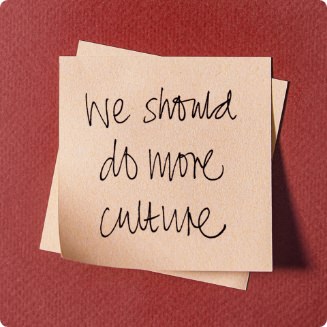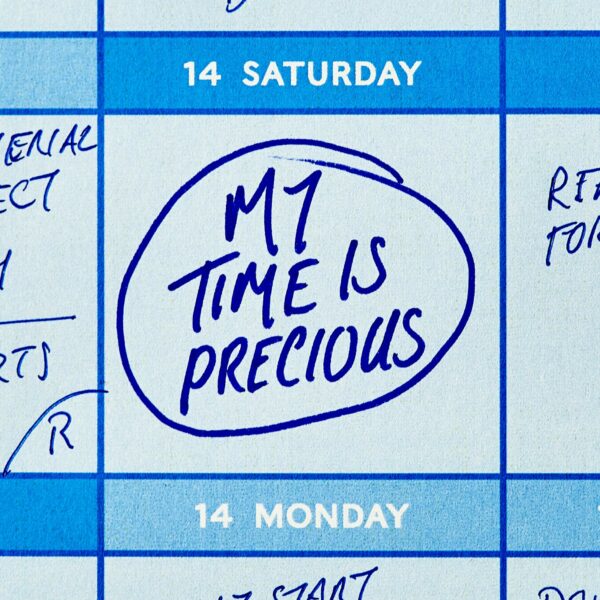- What We Do
- Understanding your audience
- Engaging new audiences
- Designing experiences
- Building loyalty

Who are they?
Entertainment tend to see arts and culture as very much on the periphery of their lives. Their occasional forays into culture are likely to be for mainstream events or days out. Leisure time is for fun, and this segment is looking for entertainment and escapism – if they do attend, it will be socially motivated and their engagement is typically among the lowest of all segments.
What role does culture play for them?
If asked, this segment would probably say culture doesn’t really play a role in their lives. They don’t see themselves as cultural attenders or going to the arts as such. But they do go out – they make day trips and they have evenings out. Sometimes this could include a blockbuster exhibition or a popular show. But the emphasis is on having fun with other people and everything else that entails rather than any intellectual pursuit or how the director approached the show or the meaning behind the art
What do they get out of it?
Entertainment’s visits are primarily socially driven. They are looking for a fun time, so you could be in a museum, having a fun time with your kids or you could be in a park, it doesn’t really matter. The deciding factors are most likely to be around “will it be entertaining?”, or “do the facilities meet our needs?” – fairly simple hygiene factors.
Entertainment don’t have some kind of taxonomy of culture; they don’t reflect on all the different art form categories they could be choosing between – they just see it all as leisure. It’s the same as shopping, going to the beach, going for a meal, going ten-pin bowling. Going to a theatre, going to a gig – these are all leisure activities you can do. Therefore, culture and the arts are literally competing against everything when trying to attract this segment.
What influences their choices?
Entertainment prefer to stick with the tried and tested, and they view popularity and celebrity casting as endorsements of quality. Therefore, they only try things which have established popular currency and have little interest in engaging with what could be considered specialist or niche.
This segment likes marketing and advertising – it’s a useful way to get information. They can tell a lot from marketing – a big, expensive billboard campaign for example is an indicator that something has high production values.
Building relationships with them
Entertainment very rarely invest in a supportive way. They don’t see culture as contributing to community or society at large. On the other hand, the instrumental benefits of hospitals and schools are clear to see. And neither would benefits-driven transactional schemes work – purely because they wouldn’t make much use of it so it’s unlikely to feel relevant or worth it.
If they don't attend?

This leaves us a challenge. If cultural visits are to compete with every other kind of day or night out, they have to deliver on the social aspects and more. If a show is truly spectacular, it will be a great thing to talk about with friends and adds excitement to the social dimension.
One temptation to avoid is the idea of seducing Entertainment with discounts. If they don’t attend, perhaps they are not convinced the experience holds value. On their occasional forays, they want a special experience. A night out that is worth dressing up for, with the best seat for the best show in town. The risk when discounting is it suggests lower demand; which means less popular appeal and could shake their confidence in the experience.
يتعلم أكثرالجوهر
ESSENCE are core cultural visitors: discerning, confident, independent and arts-essential.
يتعلم أكثرالتعبير
EXPRESSION are people people: committed, generous, creative and community minded.
يتعلم أكثرالتحفيز
STIMULATION love big ideas: they’re active, social, experimental thrill seekers.
يتعلم أكثرالتأكيد
AFFIRMATION like to do the right thing: they’re diligent, cautious and spend their time well.
يتعلم أكثريميل
ENRICHMENT see the present through the past: heritage, tradition, narrative and nostalgia.
يتعلم أكثرالمنظور
PERSPECTIVE are happy in their own bubble: settled, self-sufficient, focused and contented.
يتعلم أكثرمحبي الاسترخاء
RELEASE feel time poor: busy, prioritising, ambitious but seeking escape.
أضف تفاصيلك أدناه
Get started with Culture Segments
We offer training to use Culture Segments in your programming and product development, your services, your brand and your communications. Ultimately, we can build completely bespoke Culture Segment profiles for your organisation. If you want to fully understand your existing audiences and to reach out to new ones, you need Culture Segments.
- Engaging new audiences
- Understanding your audience







